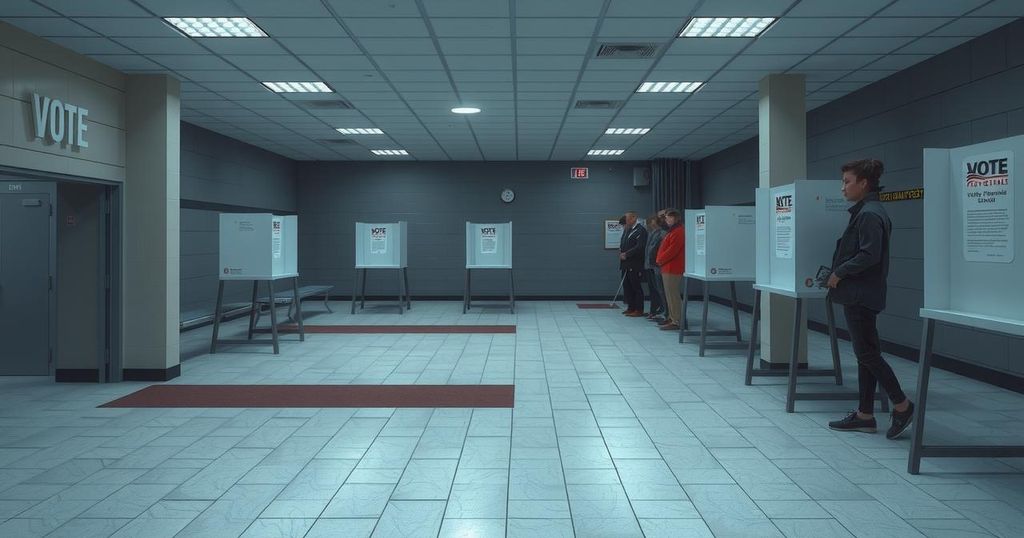Low Turnout Marks Divisive Venezuelan Elections as Opposition Boycotts Polls
Venezuelans faced low voter turnout in a divisive election, largely boycotted by the opposition. Over 21 million were eligible to vote for legislative and gubernatorial positions, marking the first elections in the disputed Essequibo region. Citizens are questioning the legitimacy of the electoral process amidst ongoing political unrest.
In Venezuela, the voting process commenced Sunday under circumstances marked by a significant boycott from the opposition. This election was held to determine members of a new legislature and state governors. The nation has seen a rather low turnout, with only a limited number of Venezuelans appearing at polling places, largely due to the opposition’s protests against President Nicolas Maduro’s contentious reelection last summer.
Approximately 21 million individuals were registered to participate in these elections. Voters were tasked with selecting 285 representatives for the National Assembly and 24 governors. Notably, this election included voting in the contested oil-rich region of Essequibo for the first time. This region, located along the border with Guyana, has been a long-standing point of tension between the two nations.
The backdrop of this election illustrates broader social and political unrest in Venezuela. Many citizens express significant disillusionment regarding the political climate under Maduro’s administration. Opposition figures argue that without fair conditions, elections cannot be regarded as legitimate, hence their choice to discourage participation in this vote.
Despite the low turnout, officials remained hopeful, emphasizing this election’s importance. Supporters of Maduro’s government framed the legitimacy of the encumbered process as a necessary step toward national stability. However, the absence of major opposition voices could leave citizens questioning the overall outcome and the credibility of the election itself.
As the country grapples with economic hardships and political dissent, these elections represent yet another chapter in Venezuela’s ongoing struggle for democracy. The situation remains fluid, as analysts continue to observe potential ramifications following this electoral process. Citizens and international observers alike will be looking closely at the numbers, hoping for progress or signs of a breakthrough in resolving the entrenched political crisis.
The Venezuelan election held over the weekend saw a low voter turnout, a direct result of a significant opposition boycott protesting President Nicolas Maduro’s controversial leadership. With 21 million registered voters, the election not only included regional leaders but also marked voting in the Essequibo region for the first time amid geopolitical tensions. The ongoing dissatisfaction among citizens illustrates the deep fractures in Venezuela’s political landscape, raising questions about the future of democracy in the nation.
Original Source: www.mydailyrecord.com




Post Comment